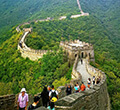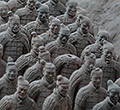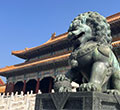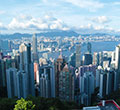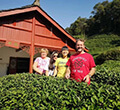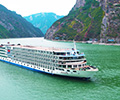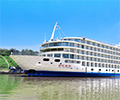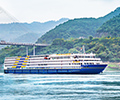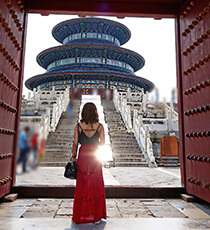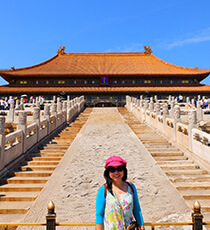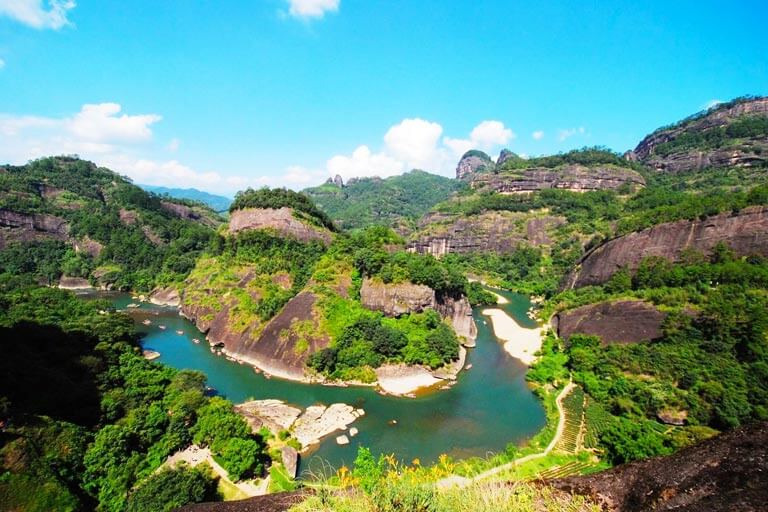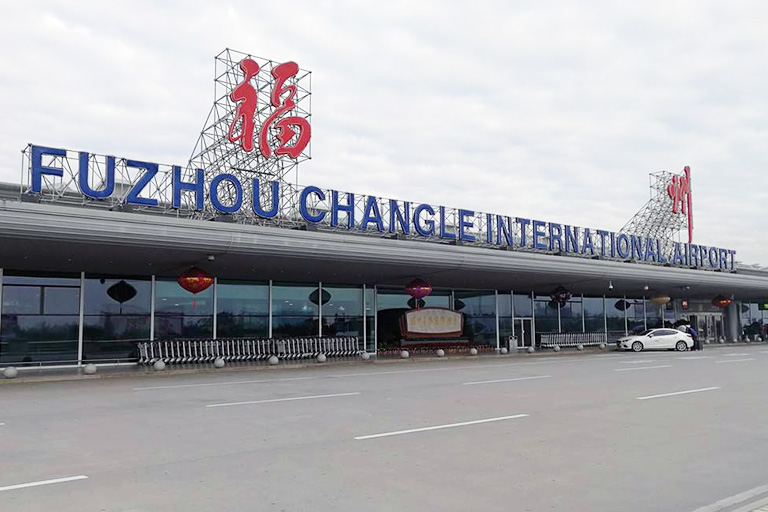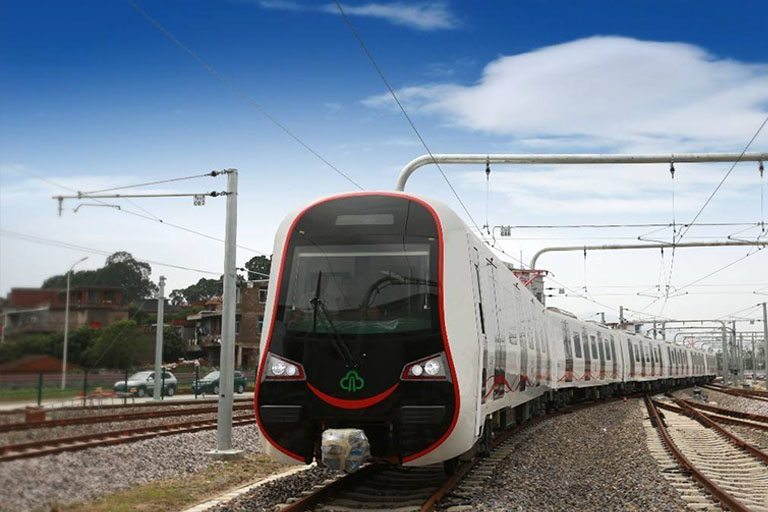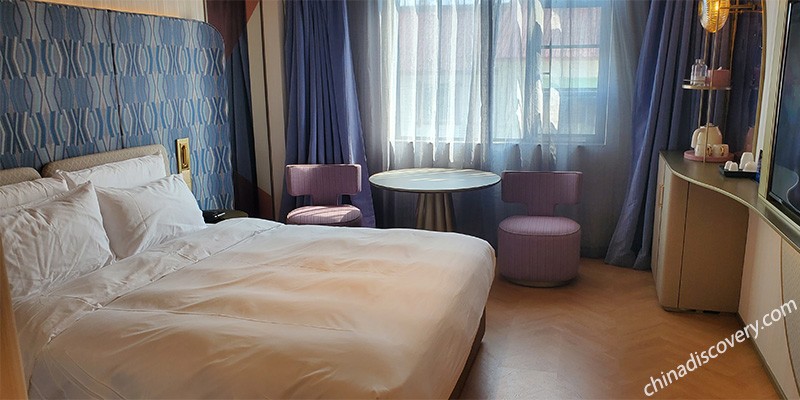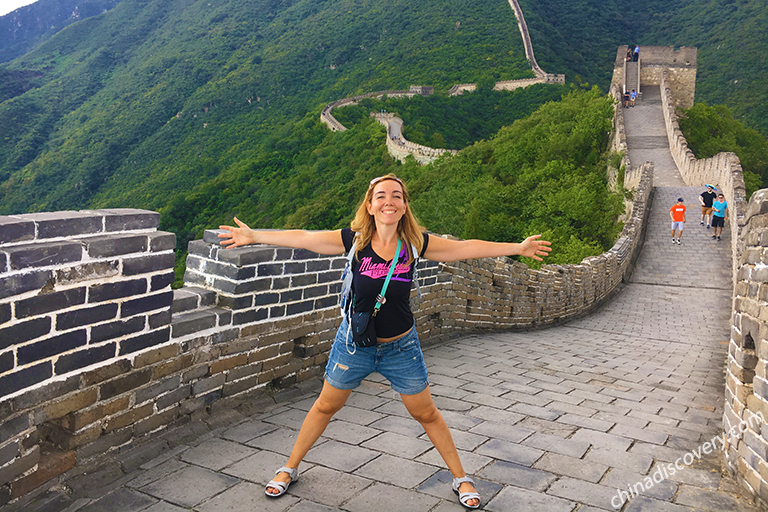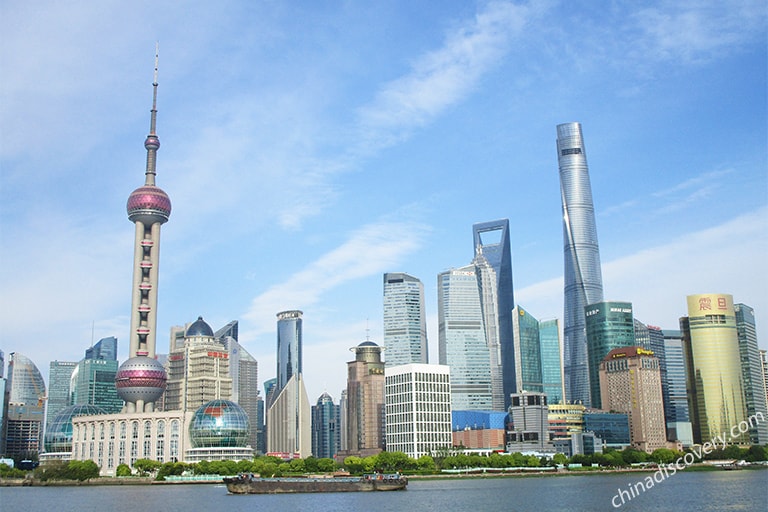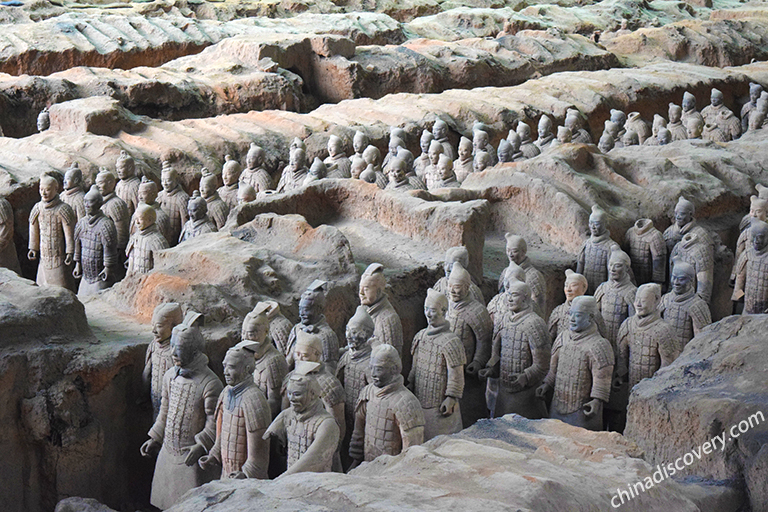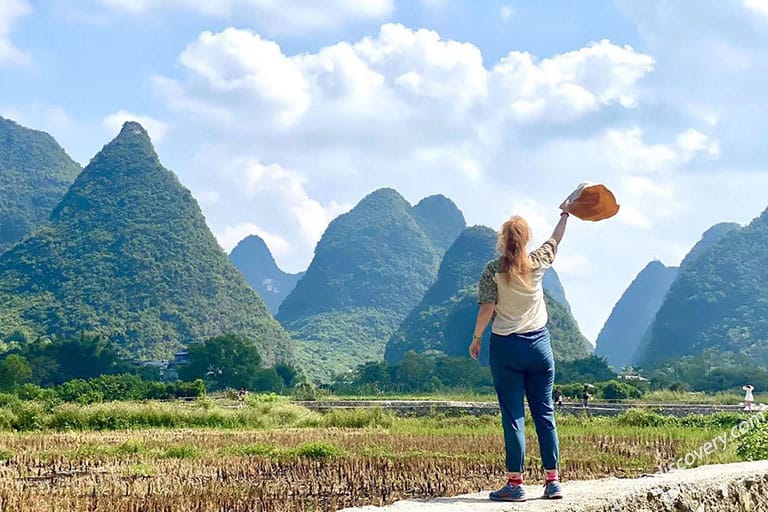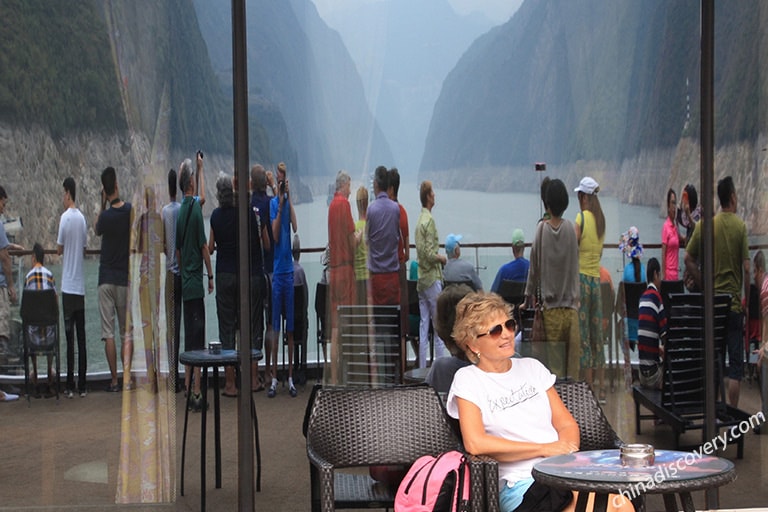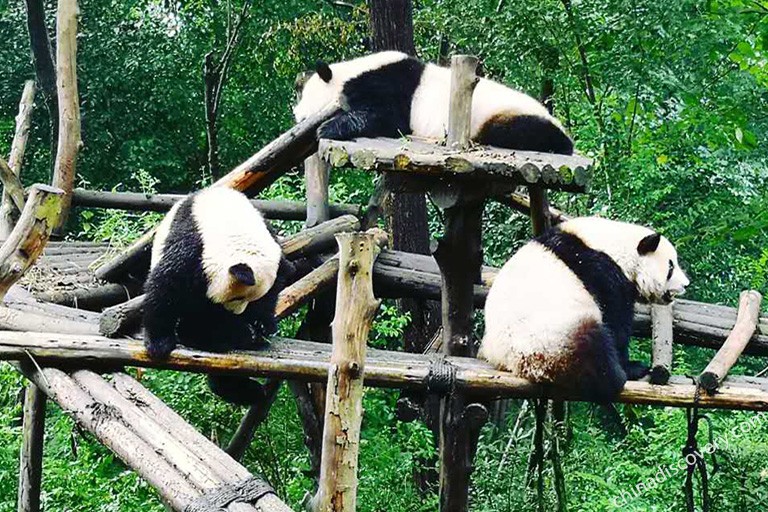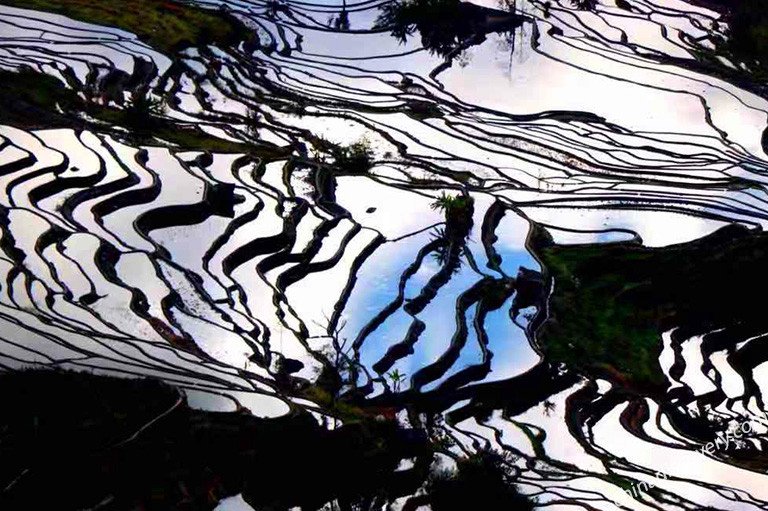Fujian, short for Min (闵), is a province located on the southeast coast of China. It is bordered by Zhejiang Province to the northeast, Jiangxi Province to the west and northwest, Guangdong Province to the southwest and facing Taiwan Island with the Taiwan Strait in between. Fujian is mostly mountains and is traditionally described to be “Eight Parts mountain, one part water and one part farmland”.
When the sailboat loaded with luxurious silk and porcelain slowly departed from Quanzhou Port; When tenacious Zheng He faced the sea and the flag of the navigation age raised behind him, Fujian was destined to be remembered by history. The northwest is higher in altitude with the World Cultural and Natural Heritage Site – Wuyi Mountain situated and the southeast is the coastline with many bays and islands, among them Gulangyu Island is the famous one. Fujian, also retains the unique earthen building group - Fujian tulou clusters in the southwest where you can experience the authentic Hakka culture and the most beautiful coastline in China in the northeast, which is an unmissable destination for shutterbugs. All in all, Fujian is the place where visitors will fall in love at first sight and never want to leave.
Why Visit Fujian Province?
-
World Heritage Site of China. There are four world heritage sites, including Mount Wuyi (in 1999) with the serene beauty of the dramatic gorges and numerous temples and monasteries, providing the setting for development and spread of neo-Confucianism; Fujian Tulou (in 2008) with 46 buildings constructed between 15th and 20th centuries mainly located in Yongding, Nanjing and Hua’an; China Danxia Landform (Fujian Taining, in 2010) is characterized by spectacular red cliffs and a range of erosional landforms, including dramatic natural pillars, towers, ravines, valleys and waterfalls. And the newly declared UNESCO World Heritage Site, which enjoys reputations of "Garden on the Sea", "World Architecture Expo", etc. - The charming Gulangyu Island (Xiamen, in 2017).
-
A place full of pyrotechnic exuberant. The culture and history of Fujian is not being buried underground but assimilated into local life. “The Garden on the Sea” - Xiamen is a paradise for gourmands. The fragrant of Hakka food wafted from the earth buildings that can hardly be found anywhere else. The Genre music murmuring in the ancient lanes and quietly slipping into the midsummer night dream of locals. Da Hong Pao is as enchanting and fragrant as a dancing beauty in the tea field. The hometown of loving Mazu - the God that Hakka people follow for generations...
-
Famous danxia landscape & mountain scenery. The charming Jiuqu Stream encircled Wuyi Mountain with its infinite tenderness; Take a boat and ride into the past on the emerald Shangqingxi River and admire the mahogany mountains on the crescent shaped Dajinhu Lake; Water rippling and sparkling under the sunshine in Baishuiyang Geological Landscape; Secluded caves and risky peaks morphs into the fantasy fairyland - Taimu Mountain; Affable and simple Lao Jun Rock quietly seated on Qingyuan Mountain...
-
Hakka culture & unique earthen buildings. Hakka, a subgroup of the Han Chinese, literally means “guest families”, are thought to have originated from the lands bordering the Yellow River and moved and settled in Southern China. Hakka people speak the Hakka language and have unique architecture based on defense and communal living - Hakka earthen buildings (Tulou). The architectural style of Hakka forts (round or square, designed as a large fortress and apartment building in one) is unique in China and around the world. Travelers who want to see the exceptional examples of a building tradition and experience a particular type of communal living, can come to see Tulous in Yongding and Nanjing counties in Fujian Province.
-
Beautiful coastal scenery & paradise for photography. Fujian is the largest province with a 3752-kilometer continental coastline and an 807-kilometer island coastline. Xiamen, Fuzhou and Quanzhou are all located in the coastal area. Besides Xiapu has the largest mudflat encompassing 40 square kilometers and more than 400 kilometers of coastline which is listed as “Top 10 Paradises for Photographers” to shoot tiger-striped beaches, bamboo structures and poles, buoys and fishing vessels…
-
Profound history & starting point of maritime silk road. Fujian has a long history. In the Mid-Tang Dynasty, five states set, namely Fu, Jian, Quan, Zhang and Ting. This is where the name “Fujian” comes. In the Southern Song Dynasty and Yuan Dynasty, Fujian had built trade relationships with more than one hundred countries and areas and the famous Maritime Silk Road started from this perch. Fujian was the starting point of Zheng He’s Naval Expeditions during the Ming Dynasty, and made his first voyage in 1405.
- ......
How to Plan a Fujian Tour
Most travelers come to Fujian to visit Xiamen and its nearby surroundings. It usually takes 2~5 days and you may spend one day in Xiamen and extend to Nanjing Tulou for one day and Yongding Tulou for one day for Hakka culture discovery. To explore further, many travelers choose to reach Wuyi Mountain from Xiamen by high speed train or flight for about 2 days trip. Some travelers who are interested in photography, may take 3-4 days to cover Xiapu Mudflat, the most beautiful coastal line in China, to shoot the masterpiece of nature. If you still have time, don’t miss the two famous costal city Fuzhou - Capital of Xiamen and Quanzhou - Starting Point of Maritime Silk Road. Each destination is worth to explore for 1-2 days. Choose your favorite trip or you can customize it with us!
To cover all highlights of Fujian usually takes 8-10 days. Besides, beyond Fujian, China boasts a lot of wonderful nature, culture, history and city charm to discover, such as Beijing, Shanghai, Guangzhou, Guilin, Chengdu, Huangshan, Hangzhou, Yunnan, etc. You can contact us and extend your Fujian tour to more popular destinations to enrich your exploration of China in one go!
Top Travel Destinations in Fujian Province
There are six tourist areas in Fujian province: Xiamen as the best gateway city with pleasant weather all year around, all types of architecture and exquisite Gulangyu Island. Fujian Tulou Area in Nanjing and Yongding, mainly related to Hakka culture, Hakka tulou clusters and surrounding idyllic scenery; Wuyi Mountain Scenic Area with first-class sightseeing of Danxia landform is a natural and cultural heritage site and a good place to explore Chinese tea culture. Xiapu county has the most beautiful coastline in China. It is one of the top 10 photography destinations in China. Tourists may also discover authentic Min culture and trace the history of Fujian in important coastal cities, such as Fuzhou, which is the “Capital of Fujian Province”, has famous “Three Lanes and Seven Alleys” and Quanzhou - “The Starting Point of Maritime Silk Road” and “Hometown of Overseas Chinese”. Furthermore, people with Mazu belief can also seek the culture by visiting the hometown of Mazu - Meizhou Island.
>> Learn more about 8 Best Places to Visit in Fujian.

Ningde

Meizhou Island
Popular Tourist Attractions & Activities in Fujian Province
With more than thousands of years of Chinese and western culture blended, diverse natural scenery of coast, mountains and rivers, Fujian province has hundreds of attractions and many historical relics, including World Heritage Sites: Gulangyu Island, Fujian Tulou, Wuyi Mountain and Taining Danxia Landform, famous temples like South Putuo Temple, Kaiyuan Temple, Yongquan Temple, etc., splendid Xiapu Mudflat... Below are the top 12 tourist attractions and activities in Fujian Province. For more attraction information, please check Top 10 Things to Do in Fujian | Top Fujian Tourist Attractions.

Gulangyu Island
Praised as "World Architecture Expo" and the "Island of Piano", Gulangyu Island (鼓浪屿) is a romantic island with petty bourgeoisie sentiments, a great place to relax...
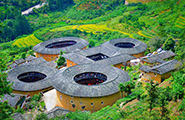
Nanjing Tulou
Nanjing Tulou (南靖土楼) is located in Zhangzhou City. The famous Hakka Tulous include Tianluokeng Tulou Cluster, Hekeng Tulou Cluster, Yunshuiyao Village, Yuchanglou Heguilou, etc.

Yongding Tulou
Yongding Tulou (永定土楼) is located in Longyan City. The famous Hakka Tulous include Chuxi Tulou Cluster, Gaobei Tulou Cluster, Hongkeng Tulou Cluster, Nanxi Tulou Cluster, etc.
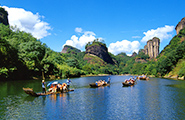
Wuyi Mountain
Wuyi Mountain (武夷山) is a World Cultural & Natural Heritage Site with profound Chinese culture. It is a great place to feel the charm of ancient China and explore the miracle of nature.
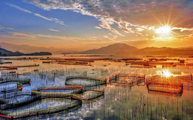
Xiapu Mudflat
Xiapu Mudflat (霞浦滩涂) in Ningde City is regarded as the most beautiful coastal line in China and reputed as one of the Top 10 best photography bases in domestic area by the shutterbugs.

South Putuo Temple
South Putuo Temple (南普陀寺) is a sacred Buddhist resort, prosperous, yet you can feel tranquility from it, besides, tourists can taste the delicious vegetarian food in the temple.
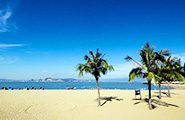
Xiamen Huandao Road
Huandao Road (环岛路), the best place for cycling in Xiamen, refers to the road sections from Xiamen University to the Old Convention and Exhibition Center along the coast of Xiamen.

Sanfang Qixiang
With the reputation of “The Historical Source and Cultural Root of Fuzhou”, Sanfang Qixiang (三坊七巷), or called Three Lanes and Seven Alleys, is the most famous historical block of Fuzhou.
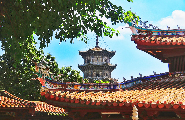
Kaiyuan Temple
Kaiyuan Temple is the largest temple in the whole Fujian Province. It was first built in AD 686 during the Tang Dynasty. The two towers - East Tower and West Tower are highlights of the Temple.

Taining Scenic Tourist Area
Taining Scenic Tourist Area (泰宁风景区), a vital part of Danxai Landscape, including the most popular Dajin Lake Scenic Area, Shangqing Stream, Taining Old Town, etc.

Taimu Mountain
Taimu Mountain (太姥山), known as the "Fairyland on the Sea", is featured with granitic peaks and caves and combines the natural scenery of mountains, sea and river with cultural scenery together.

Meizhou Island
Meizhou Island (湄洲岛) is praised as the “Oriental Mecca”. It is the hometown of Mazu. The grand Mazu Sea Festival is held on the 3rd of the 3rd lunar month and 9th of the 9th lunar month every year.
Fujian Weather & Best Time to Visit

Fujian Province is situated in Tropic of Cancer which is deeply influenced by the monsoon circulation and terrain. Hence, the climate of Fujian belongs to the subtropical maritime monsoon climate with mildly cold winters and humid summers. It has an average temperature around 17~21℃ and an average rainfall of around 1400~2000mm.
Fujian can be visited all year round and you can travel anytime you like. You can take a cruise to Gulangyu Island or enjoy the idyllic tulou clusters in spring, cycle along Huandao Road and relax on the beach in Summer, shoot amazing pictures of coastal scenery in Xiapu in autumn and visit historical city like Xiamen, Fuzhou and Quanzhou in Winter. The following recommended places in each season are for your reference.
Best Places to Visit in Spring: Xiamen, Gulangyu Island, Wuyi Mountain, Fujian Tulou, etc.
Best Places to Visit in Summer: Qingdao, Weihai, Yantai, etc.
Best Places to Visit in Autumn: Xiapu County, Xiamen, Fuzhou, Fujian Tulou, etc.
Best Places to Visit in Winter: Xiapu, Quanzhou, Fuzhou, etc.
>> Learn more about Fujian Weather & Best Time to Visit | Xiamen Weather | Tulou Weather | Wuyishan Weather.
How to Get to & around Fujian
Get to Fujian
Fujian can be arrived flexibly by flight, train, cruise and highway. Xiamen and Fuzhou are two major transportation hubs. You can choose or combine available transportation tools according to your travel plan.
By Flight
There are overall 7 airports in Fujian, the three major international airports in are Xiamen Gaoqiao International Airport, Fuzhou Changle International Airport and Quanzhou Jinjiang International Airport. There are international flights to London, Sydney, Tokyo, Los Angeles, Singapore, etc. and domestic flights to Beijing, Xi’an, Shanghai, Hong Kong, Guilin, Kunming, Chengdu, etc. There is an airport in Wuyishan City, for those who want to get directly to Wuyi Mountain at high speed, can take flights to Wuyishan Airport.
By Train
Fujian province has a well-developed high-speed rail system, connecting the vast majority of areas in the province. Currently there are frequent high speed trains to Xiamen, Fuzhou, Quanzhou, Wuyi Mountain, Xiapu County and other places in Fujian from Shanghai, Shenzhen, Beijing, Huangshan and other nearby provinces. If you want to go to Fujian Tulou Area, you are suggested to get to Xiamen first and transfer to a car or bus to Fujian Tulou area for about 2-3 hours.
Get around Fujian
It is recommended to use high speed trains when you travel between destinations which are not close to each other, such as Xiamen – Fuzhou, Xiamen – Wuyishan, etc. Xiamen, Fujian Tulou Area and Quanzhou are located closely, thus you can transfer among them by car. Xiapu mudflats and Fujian tulou clusters are scattered in Xiapu, Nanjing and Yongding , therefore taking a car is the best way to travel around. Flights are seldom used for city-to-city transfer in the province.
To get rid of hustle and bustle of public transportation and time-consuming tickets booking, it is strongly recommended to travel Fujian with our packaged tour which includes not only tour guide, hotels, meals, attractions, etc., but also takes care of all the transfers during your trip, from airport/train station pick up, high speed train, flights to private vehicle and your own driver, so that you can focus all your time and energy on enjoying magnificent culture and beautiful landscape of Fujian. Feel free to contact us if you need any help.
>> Learn more about Fujian Transportation | Xiamen Transportation | Tulou Transportation | Wuyishan Transportation | Xiapu Transportation .
Fujian Accommodation and Where to Stay
The tourism industry has developed well in Fujian, so is its accommodation. It is usually easy to find a good hotel that is well located and equipped with good facilities in Xiamen, Fuzhou and Wuyi Mountain etc. The two biggest cities, Xiamen and Fuzhou, have the highest-end hotels with many international luxury hotel brands and domestic luxury hotel brands offering suites, deluxe rooms, standard rooms, etc. Smaller places like Quanzhou, Nanjing Tulou Area, Yongding Tulou Area, Xiapu County, Weifang, etc. mainly offer Chinese hotels, including featured guest houses, valuable 3-star 4-star and 5-star hotels. There are many top-class resorts in and around the Wuyi Mountain Scenic Area.
As for hotel areas, we suggest you choose those hotels not too far away from the city center, business districts and transportation stations. If you are an independent traveller, you are suggested to stay close to train stations, shopping streets, major attractions so that you can find public transportation, food and shops easily. If you prefer a worry-free tour operated by travel agencies like China Discovery, you can accommodate around the commercial center, or stay away from the crowds. Your travel agencies will find a well-located and well-equipped hotel for you.
>> Learn more about Xiamen Accommodation | Tulou Accommodation | Wuyishan Accommodation.
Fujian Travel Maps
For your better understanding of the location and transportation of Fujian Province and help you plan your Fujian trip, here we collect some useful Fujian travel maps including Fujian China Map, Fujian Province Map, Fujian Attractions Map and maps of Xiamen, Fuzhou, Quanzhou, Nanjing, Yongding, Wuyishan, Xiapu, etc.
>> Check more about All Fujian Maps 2025 | Xiamen Maps | Tulou Maps | Wuyishan Maps.

Fujian China Map

Fujian Province Map
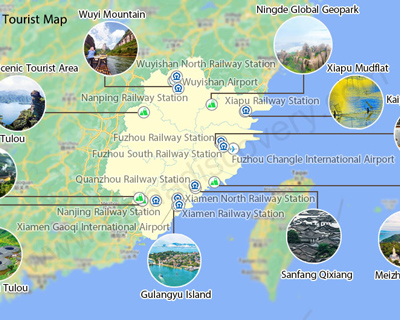
Fujian Tourist Map
Other Popular Destinations in China
China is vast and diverse. You can choose your favorite destinations among more than 70 tourist destination and regions, like Beijing, Shanghai, Xian, Chengdu, etc. Following are 8 popular destinations you may get interested in. Check all destinations in China.
Start planning your tailor-made holiday to China by contacting one of our specialists. Once
inquired, you’ll get a response within 0.5~23.5 hours.
Customize a Trip
